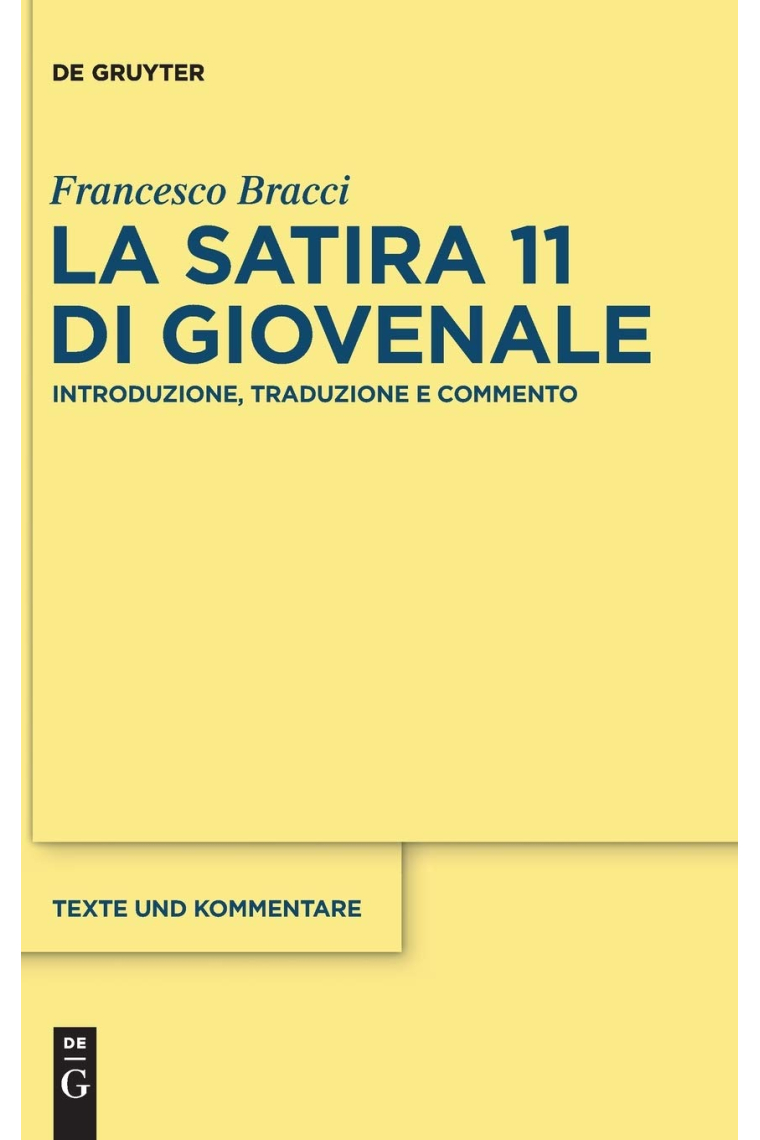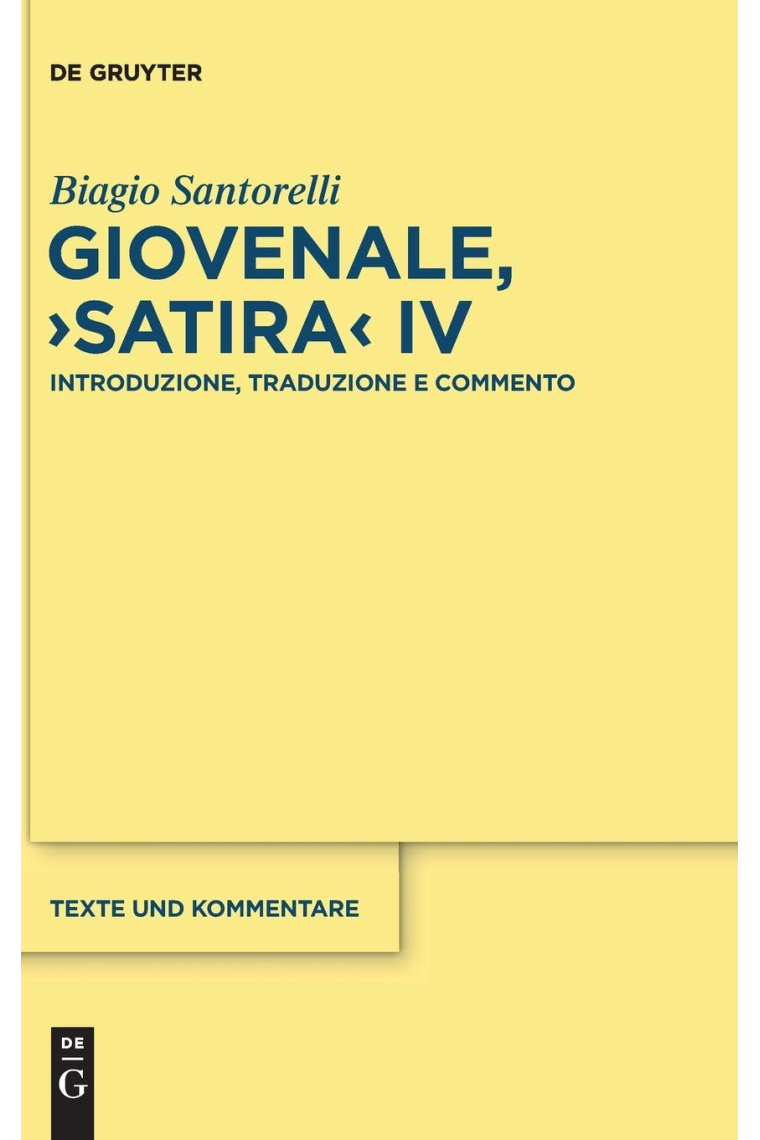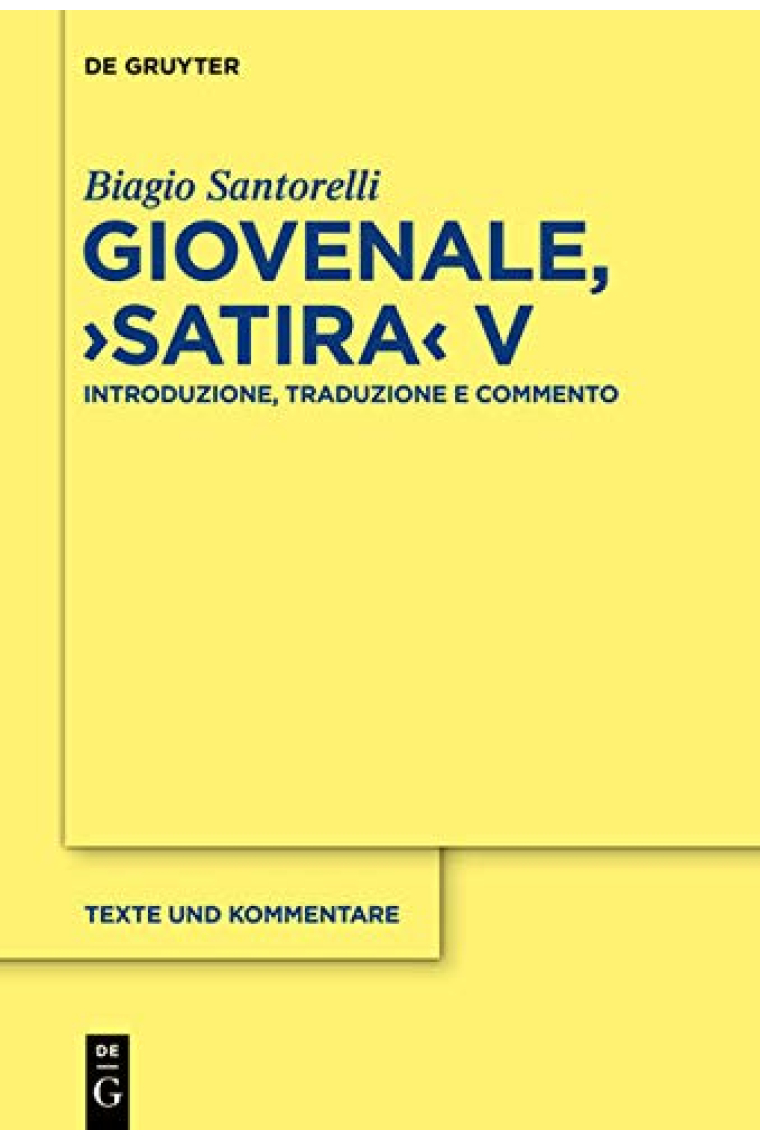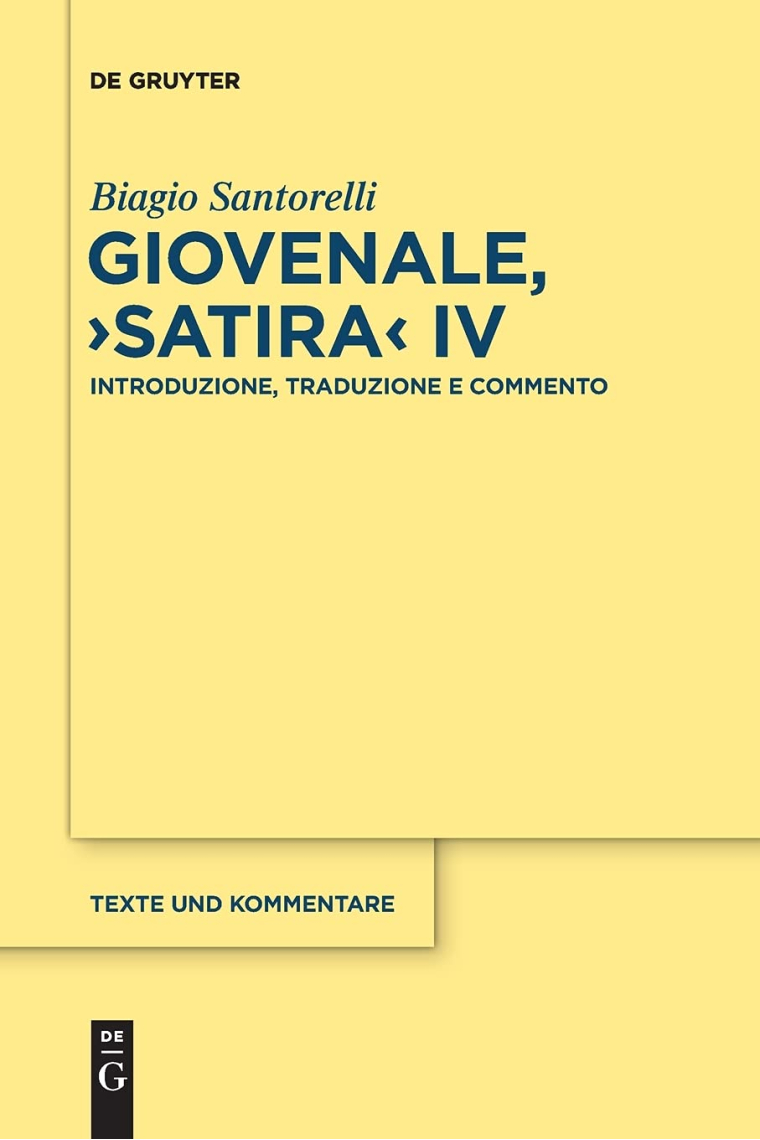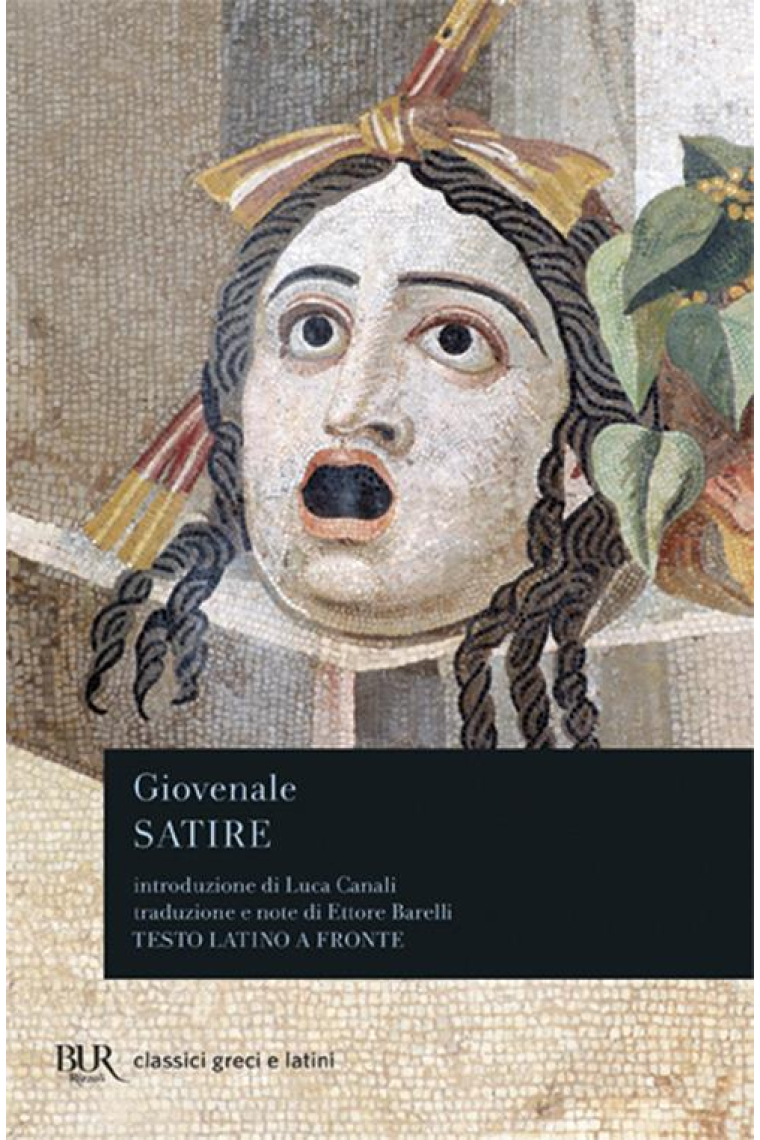Detalles del libro
Juvenal has long been known as the poet of indignation, a view based mainly on his early satires. His later work had been relatively overlooked until recently. The present commentary is meant to be a contribution to the reappraisal of the later part of Juvenal’s career, a significant trend in the juvenalian scholarship of the last decade.
Among the topics addressed there are the relationship between Juvenal and Martial, his position within the tradition of Roman satire, his relationship with the cultural discourse of Roman moralistic literature, the intertextual links with satire 5 and the vexata quaestio of the literary or authentic nature of Juvenal’s work. The author denies a strong break between the early books and the 4th and satire 11 in particular, advocating the idea of a gradual evolution rather than a radical conversion.
In the commentary the reader will find a comprehensive analysis of textual problems and stylistic features, in a historically comparative light, with early Juvenal, other satiric poets and Martial as the chief objects of comparison.Realien are also devoted close attention. The volume will thus be a useful tool for scholars and students interested in latin satire and poetry, and also for historians of roman society in the early imperial age.
Il presente volume costituisce il primo commento esclusivo alla satira 11 di Giovenale. L’introduzione affronta problemi quali l’unità strutturale del componimento, il rapporto con i suoi modelli e l’influenza esercitata dalla tradizione moralistica romana. Il commento si sofferma diffusamente su questioni testuali, linguistiche e storico-archeologiche. Al testo segue una traduzione italiana originale.
- Encuadernación Tapa dura
- Autor/es Giovenale / Bracci, Francesco
- ISBN13 9783110371130
- ISBN10 3110371138
- Páginas 238
- Año de Edición 2014
- Idioma Latín
La satira 11 di Giovenale: Introduzione, traduzione e commento
- Giovenale , Francesco Bracci
- Editorial WALTER DE GRUYTER
- ISBN 9783110371130
 ¡Gracias por comprar en librerías reales!
¡Gracias por comprar en librerías reales!

 Lo mejor de noviembre
Lo mejor de noviembre  Alibri Llibrería, Barcelona
Alibri Llibrería, Barcelona
 Librería Lé, Madrid
Librería Lé, Madrid
 Caselles Llibrería, Lleida
Caselles Llibrería, Lleida
